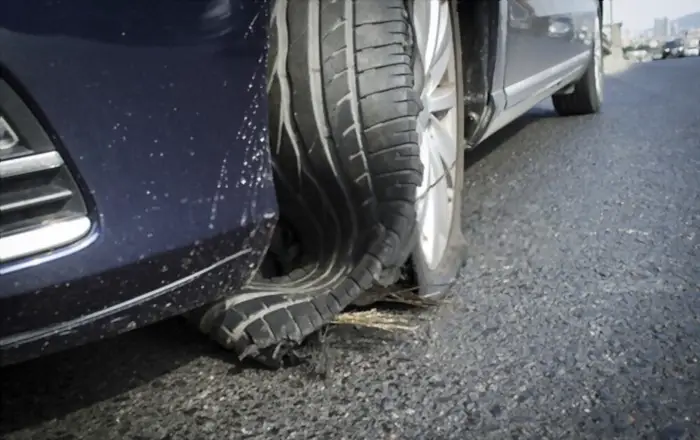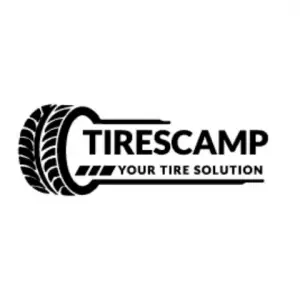Spaces are now considered a luxury as more and more cars are produced. Every day is difficult if you don’t have access to a private driveway, parking, or garage. It might be challenging to get suitable parking if you reside on a busy terraced street.
As a result, more drivers are compelled to park on pavement and curbs to avoid blocking the roads. Thus, the issue of whether parking on a curb will harm your tires has arisen.
Well, if you’ve been thinking about this, you can stop now because we’ve finally created this helpful post to answer your query.
Do Your tires Get Damaged When You Park on a Curb?
Striking a curb can harm your tires. Perhaps not the gentle strikes, but hard hits at high speeds can dent the tires and create bulges on one side, making them unsafe to drive on.
When a sidewall of a tire strikes a curb, it may result in cuts in the rubber that may gradually worsen and destroy the tire entirely. Also, when a sidewall rubs against the curb, the rub can cause it to wear unevenly and degrade the rubber.
If you really must mount a curb to park, look for a lowered curb, climb the pavement, or carefully and slowly ascend the curb.
A healthy tire won’t be affected much by leaving a car with one half on the curb and the other half on the road, other than gradually causing uneven tire pressure between the two sides. On the other hand, applying additional pressure to tires with pre-existing issues, such as a worn-down tread or slow puncture, may worsen those issues.

Common Causes of Tire Damage
Other than striking a curb at high speed, other things can cause damage to your car tires. Below are five common causes of tire damage and how to prevent each:
Center Wear
The percentage of tire that touches the road when you drive is optimally attained when the tires are properly inflated. The center of your tire’s tread may slightly protrude if it is overinflated, reducing the tire’s contact at the tread’s edges.
As a result, the tread’s center will experience more significant wear. Furthermore, particularly during understeer or wheelspin, powerful sports cars capable of applying a lot of power to their wheels might also experience increased wear in the center of the tires.
Shoulder Wear
The margins of the tire’s tread closest to the sidewall will be subjected to increased stress if the tires are underinflated, while the midsection of the tire will sag inward. Or, you might notice that your tires are wearing down quickly on one side near the shoulder if your steering, suspension, or alignment are set up incorrectly or if they are forced out of alignment by a pothole or fender-bender.
Typically, when the tread on your tires gets too worn out, you should replace them. The forces are distributed over a larger tire area when the tire pressure is appropriately adjusted, resulting in more evenly distributed wear and longer tire life. Even though the tread is deeper elsewhere, if you only notice wear in one particular location of the tire, you still should replace the tire.
Sidewall Harm
Due to their thinner construction, your tires’ sidewalls are more prone to punctures than even the tread.
The tire’s ability to carry a heavy vehicle comes from the air inside the tire, not the sidewalls. Therefore, it’s very likely that you may have a cut or gash in the sidewall, resulting in a flat tire. Maximizing your tire’s sidewall strength also depends on maintaining the proper tire pressure.
Cuts & Punctures
Of course, road debris is the most frequent cause of unforeseen tire damage. Nails, screws, pieces of glass, and other stray trash can become stuck under your car’s tires and create a flat.
Simply put, attempting to avoid these things is not practical. They will always be too little to see until you are too close to dodge them. The best thing you can do is ensure your tires are properly inflated, so they are as sturdy as possible.
Ideal Tire Wear
You will always encounter a tiny bit of tire wear, even if your car is precisely set up and you drive flawlessly. Fortunately, you’ll get the longest life out of your tires if the wear is distributed uniformly across each tire and all four wheels are routinely rotated and pressure-tested.
Frequently Asked Questions (FAQ)
Will Tread Depth Affect How Long Your Tires Last?
Yes. Tread depth affects how long your tires are likely to last.
The table below shows tread depth life expectancy.
| Tire Tread Depth | Life Expectancy |
| 11 32nd | Good |
| 10 32nd | Good |
| 9 32nd | Good |
| 8 32nd | Good |
| 6 32nd | Okay |
| 5 32nd | Okay |
| 4 32nd | Okay |
| 3 32nd | Bad |
| 2 32nd | Legal limit |
Will Parking on a Curb Damage My Car Suspension?
Your car’s suspension may be harmed by the impact of mounting a curb without using a dropped curb to park on it. With sufficient force, the entire suspension spring could be displaced, which can affect alignment and harm the rods and shocks.
Minor impacts will typically result in minimal damage, but if they happen frequently over time, they can result in major problems and a hefty cost from your neighborhood garage.
It is adviced to avoid mounting curbs completely, but as this appears to be unavoidable on many public roadways, look for a lowered curb and gently mount it instead. Alternatively, you can raise the parking concerns with your neighborhood council, but don’t hold your breath.
What Happens if You roll over a curb?
If you roll over a curb and scrape the bottom of the vehicle, you risk disconnecting the linkages and cables from the transmision case housing.
What Should You Check After Hitting The Curb?
After hitting the curb, you should:
- Examine the wheels and the tires for any visible damage
- Test the steering for any issues
- Check under the vehicle for any visible damage
How Do You Know That Your Tires Are Damaged?
To know whether your tires are damaged, look for the following trouble signs:
- Cuts and cracks on the sidewall
- Worn-out treads
- Blisters and bulges
- Car vibration
Final Take
We hope this article helped answer your question on whether parking on a curb can damage your car tires. Parking on a curb can cause harm to your tires. If you have to park on a curb, find a lowered one.
